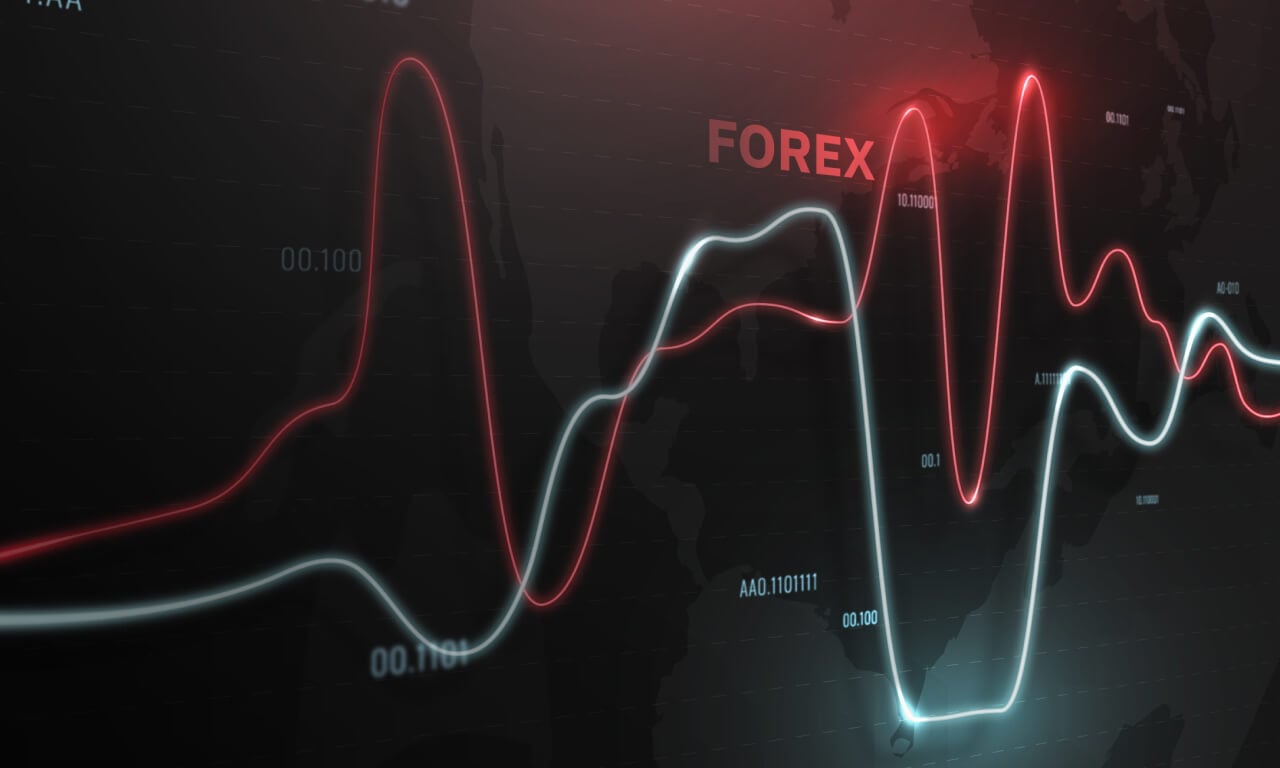As the biggest and one of the most accessible financial markets to trade in, the forex market holds plenty of trading opportunities for traders all over the world. Forex trading is essentially the exchange of one currency for another, and the value of both currencies are measured against each other. This is called an exchange rate.
There are typically two types of exchange rates — fixed rates and floating rates. If a currency has a fixed rate, its value is pegged to the value of another currency and maintained until the local government adjusts the official exchange rate.
However, if a currency has a floating rate, its value is determined by forces in the forex market through supply and demand.
But what are these forces that affect floating exchange rates? And what factors should a trader consider when predicting how a currency value will move?
In this blog post, we go through important factors that affect the mid- and long-term trends of foreign exchange rates and the value of currencies.
Interest rates
A high interest rate leads to higher currency values, as it will attract foreign investment and increase the demand for the local currency.
The interest rate is an amount that is charged to a borrower as a cost for using the capital or asset that they borrow, and is a percentage of the total amount borrowed. This represents the rate of return for the investor, which is the gains or losses of the investment.
When interest rates offered by a country are high, foreign investors will be more willing to invest in the country as they will receive a higher rate of return — or higher gains — from their investment over time. When foreign capital is poured into the local country as investment, the foreign currency has to be converted into the local currency. This pushes up the demand for local currency and raises its value.
Interest rates are determined by central banks, so it’s good to keep an eye on important announcements made by them.
Inflation
Inflation occurs when rising costs of goods and services lead to the decline of a currency’s purchasing power. The measurement of a currency’s purchasing power is a strong indicator of its value, and can be observed through a country’s level of inflation.
Inflation occurs when goods and services become more expensive. This can happen either because of rising production costs thanks to more expensive raw materials or services, or because of an increased demand. This in turn pushes up the prices of goods and services as either they become more expensive to produce or production fails to meet increasing demand.
If inflation is high, it would cost a consumer more money to buy the goods and services compared to previously, meaning the currency has less purchasing power. The measurement of a currency’s purchasing power is a strong indicator of its value.
If inflation is low, a currency is strengthened because its purchasing power is high — one unit of the currency is able to buy more. This leads to an increase in demand for that currency, which in turn raises its value.
International trade
A currency’s value can also be affected by the balance of trade between countries — the balance of trade refers to the difference between a country’s imports and exports. Countries with higher exports will usually experience an increase in their currency’s value.
Let’s say demand for UK products increases. Countries that want to import UK products will need to convert their currency to British pound sterling to buy UK products. This will then increase the demand for pound sterling as countries are buying more products with the currency, which will then boost its value.
International trade is also affected by a country’s inflation rate.
For example, if the US has a high inflation rate, buying US-made products and services becomes more expensive as the US dollar’s purchasing power has decreased. There will be less demand for the US dollar, thus leading to a decreasing value and exchange rate.
Economic and political stability
International trade is closely related to a country’s economic health. Economic health can be measured by a number of factors, including GDP, inflation, as well as a country’s current account and balance of payments — the difference between how much a country spends and how much it earns.
If a country spends more to import foreign trade compared to what it earns, their balance is in deficit. They would need more foreign capital to buy foreign products, resulting in a lower demand for local currency and a decrease in the local currency’s value.
A currency’s exchange rate and perceived value are also strongly affected by a country’s political stability. Solid financial and economic policies determined by a stable government will greatly contribute to confidence in a currency and the economy as a whole.
When people are confident and optimistic about an economy’s future expansion and growth, they will be more willing to invest in the local currency. This will increase demand for the currency, and thus strengthen its value.
Speculation
The forex market and currency exchange rates can also react to speculations. For example, if speculators anticipate a rise in currency value in response to political events or global news, investors will buy more of it in the hopes of making a profit by selling it when prices rise. This leads to an increase in demand, resulting in an increase in the currency’s value.
It is important to note that there are many factors that contribute to currency exchange rates and price movements, leading to potentially significant volatility in the forex market.
So in addition to considering the factors mentioned above in a fundamental analysis, make use of technical analysis to support your strategy and trading style when you trade forex. You can practise trading risk-free with a demo account that’s pre-loaded with virtual currency, which allows you to refine your strategy before trading with real money.
